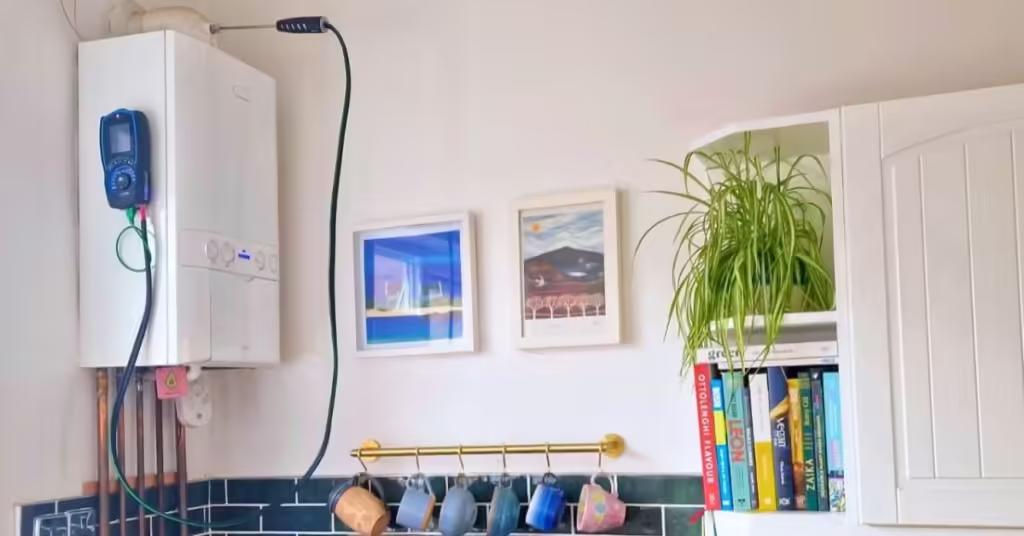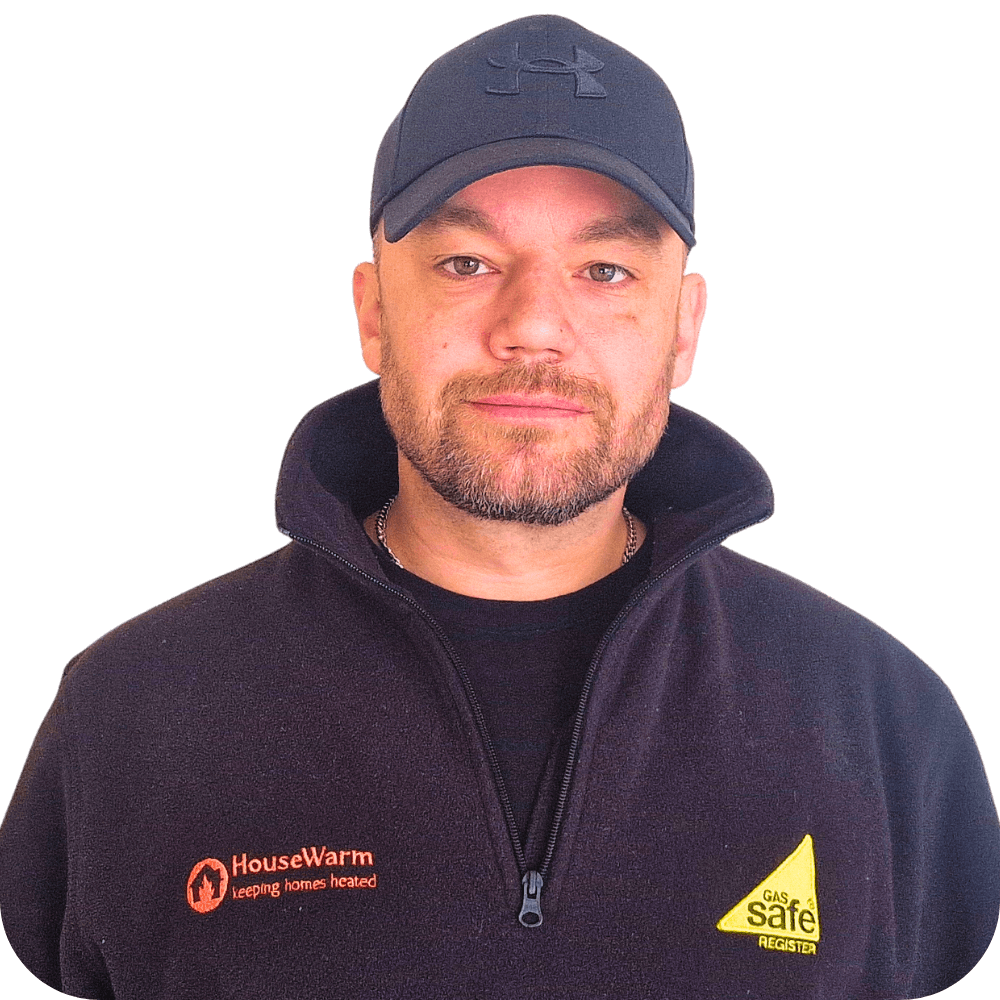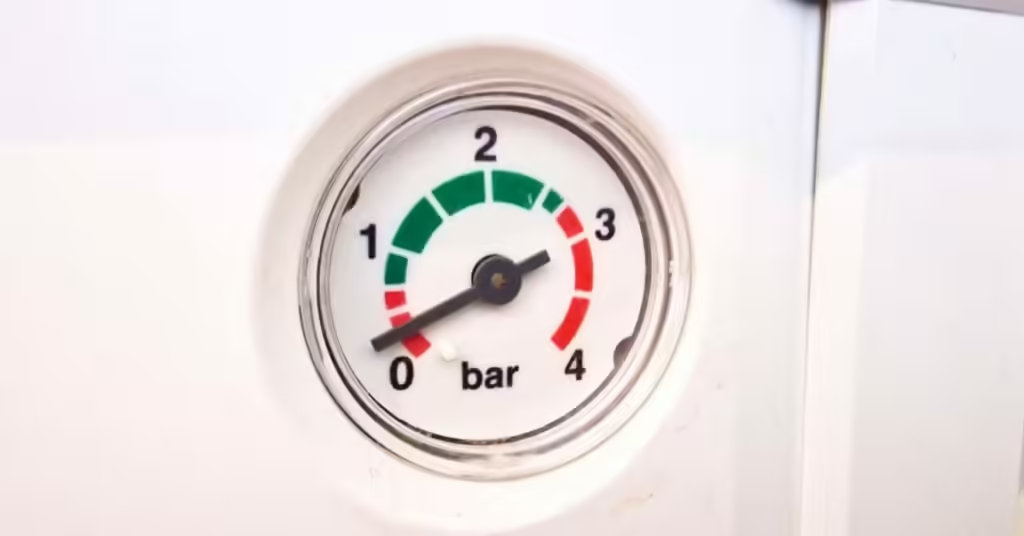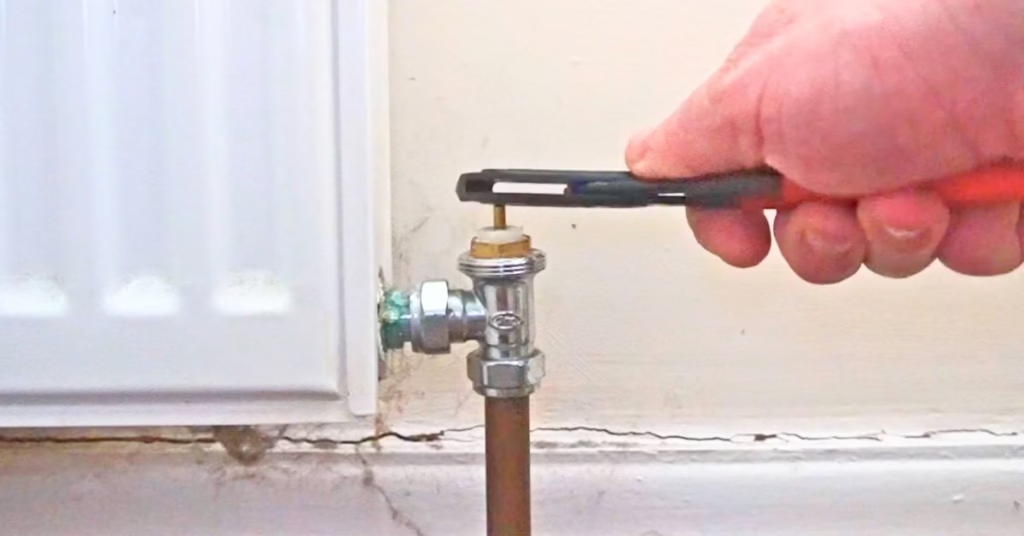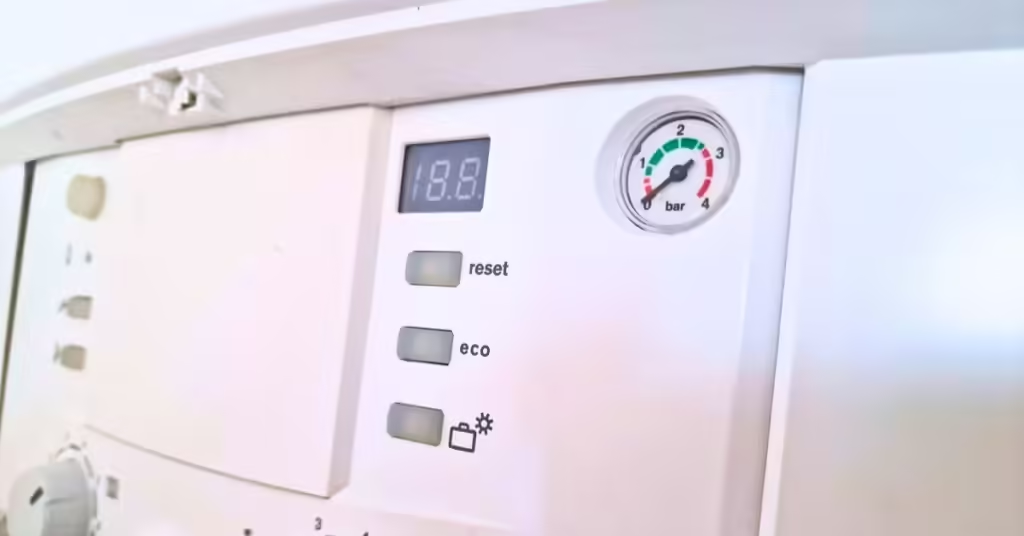Last updated on March 2nd, 2025
Changing to a combi boiler from a conventional boiler is a big job, and can involve floors being pulled up to access and changing the pipes around.
I fit combi boilers regularly and changing from a conventional boiler to a combi boiler system will usually take me two days to complete, but could take more depending on what else needs to be done (e.g. new radiators etc).
What is involved in changing to a combi boiler?
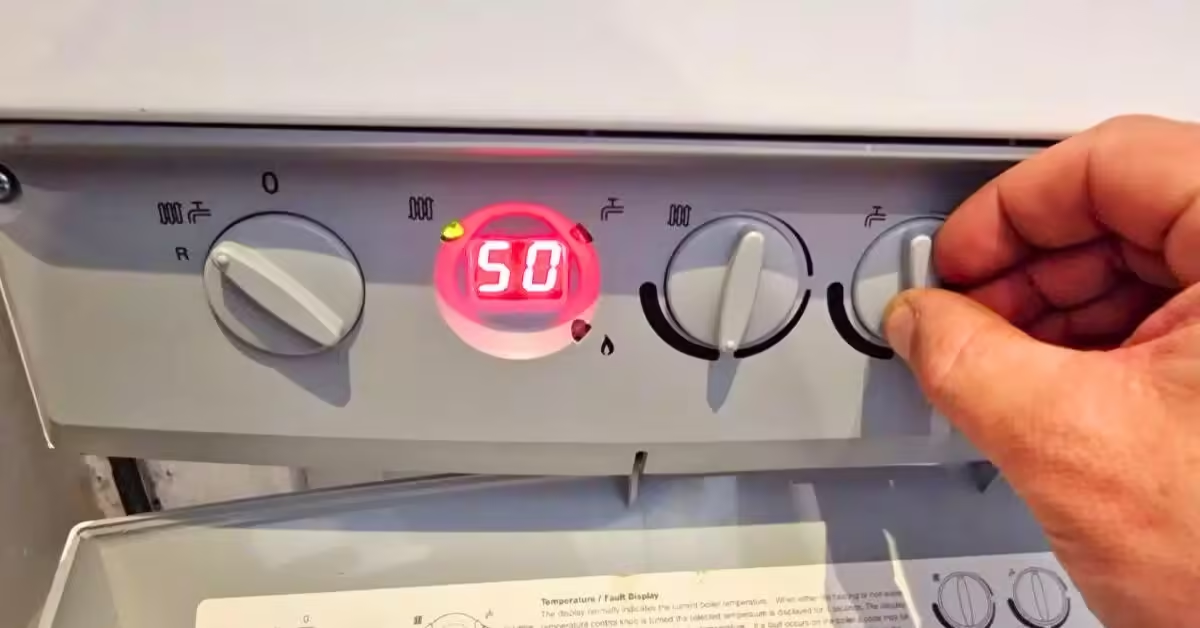
There is quite a lot involved when changing to a combi boiler. The first job is to drain down the heating system, hot water tanks, and hot water cylinders. Then you need to remove the tanks, cylinder, boiler, any old pipes not needed anymore, old controls and electrics.
The next job is to adapt the pipework where the cylinder was and get it ready for the combi boiler. If the new combi boiler is going in the same location as the conventional boiler was, then you will need to run hot and cold water pipes to the combi boiler and upgrade the gas pipe if needed.
You can then fit the new combi boiler, flue, and Boiler Plus compatible programmable thermostat.
Connect all the pipes up to the combi boiler, flow and return, hot and cold water, gas, and you will need to run a plastic condensate pipe to the nearest drain as it will be a condensing combi boiler, and also a copper blow-off pipe will need to run outside.
Changing a back boiler to a combi
Changing a back boiler to a combi is a little more difficult than changing from a conventional boiler, as the back boiler is in the chimney breast and typically made of heavy-duty cast iron built to last!
The back boiler will be sitting behind and connected to a gas fire, which will usually both get removed at the same time. The pipes connected to the back boiler are almost always a nightmare to access and cut, and I usually have to get the multitool (electric cutting tool) and reciprocating saw out.
System boiler vs combi boiler
The system boiler vs combi boiler question is something you will need to explore. A combi boiler is the most common type of boiler in the UK, but a system boiler will be your best option if you have a high demand for hot water. System boilers and combi boilers look very similar. Unlike a conventional boiler, both of these boilers have a pump and expansion vessel inside.
What is a system boiler?
A system boiler does not have hot and cold water pipes connected to it as a combi boiler does. A system boiler will need a separate unvented hot water cylinder to store and heat your hot water.
What is a combi boiler?
A combi boiler is a stand-alone unit that heats your hot water directly from the cold mains supply as you use it. You can get some powerful combi boilers in the UK, over 40 kW, but if you plan on having multiple mixer showers on the go at the same time regularly, you might be better off with a system boiler.
Disadvantages of a combi boiler
A couple of disadvantages of a combi boiler in your home would be that they are not suited for large homes with high hot water demand.
Too many showers
If you have multiple mixer showers being used at the same time, a combi boiler might struggle to supply enough hot water to feed all the showers being used. You might not reach a high enough temperature on a combi boiler on the hot water. This is because the water is heated instantly as you need it.
If you regularly have two or three showers running at the same time and two or three bathrooms, then a system boiler with a separate hot water cylinder might be the best option.
Boiler breakdowns
Another disadvantage of a combi boiler would be if the boiler breaks down, you will be without heating AND hot water until it is repaired. If your boiler’s safety device kicks in because of a hot water problem, then you will lose your central heating as well as your hot water. Having an electric shower can be helpful in this situation, as it does not use hot water from the combi boiler.
Summary
Changing to a combi boiler is a good decision for most properties but if you have a large house and a big family, then an unvented cylinder and traditional boiler is probably the best option.
FAQs
What size combi boiler do I need?
What size combi boiler you need depends on a few different things. The size of your house is one, but more importantly, the amount of hot water draw-offs (hot taps and showers) you have. If you have two bathrooms with two mixer showers, you will probably need a 32 kW or more. If you have a small flat with one bathroom and a mixer shower, then a 24 kW smaller combi boiler might do the trick.
Also, the distance of the furthest hot water draw-off should be considered as the further the hot water has to travel along the pipe from the boiler, the colder the combi boiler temperature will be for the hot water. The flow rate of your water out of the taps is crucial to working out what size combi boiler you need.
The faster the flow rate, the larger or more powerful combi boiler you will need to make sure the water reaches a hot enough temperature.
What happens to flow and return when changing system boiler to a combi boiler?
The flow and return pipes will be used on the combi boiler when changing the system boiler to a combi boiler. Both boilers have flow and return pipes going to and from the radiators, but they will need to be adapted to get rid of the primaries heating the hot water cylinder.
Is it easy to change from a conventional boiler to a combi?
The simple answer is no, and it’s not cheap, changing from a conventional boiler to a combi might not be easy, but it will be worth it and may be necessary for your home.
